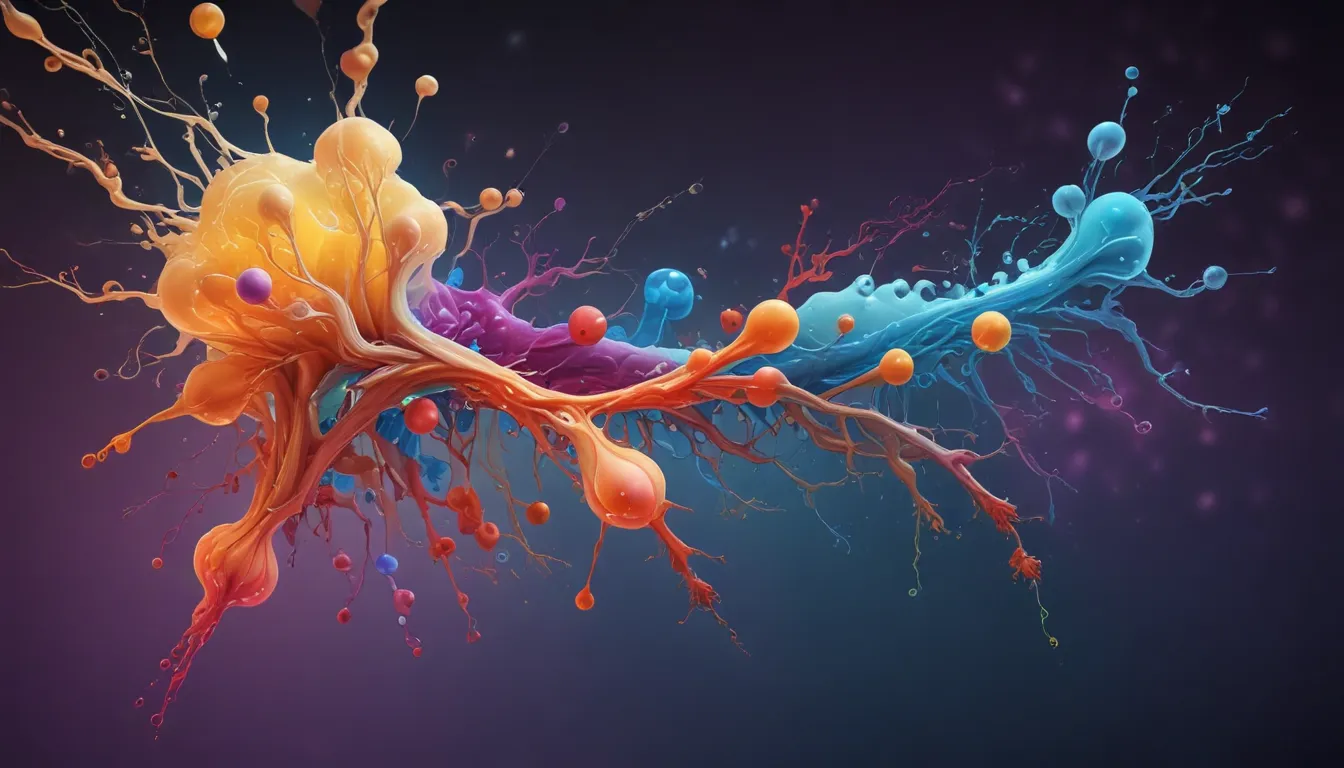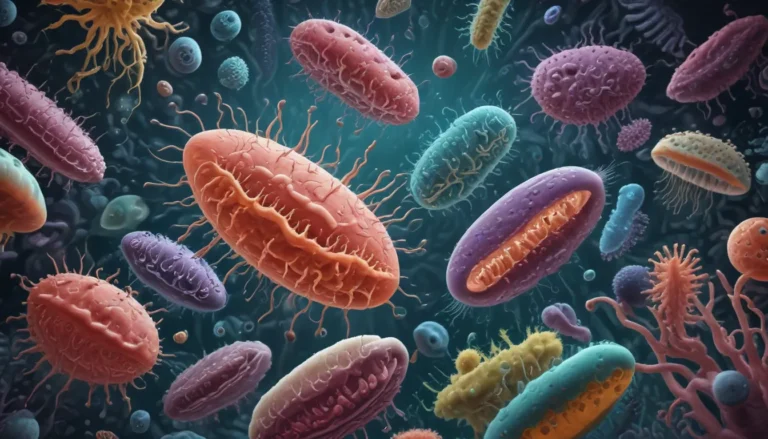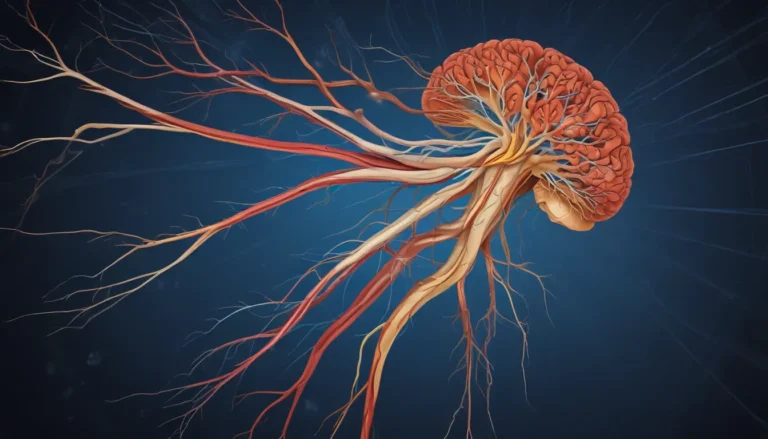A Note About Images: The images used in our articles are for illustration purposes only and may not exactly match the content. They are meant to engage readers, but the text should be relied upon for accurate information.
Are you curious about the intricate dance between hormones and receptors within your body? Hormones play a significant role in controlling various bodily functions, and their interaction with receptors is a compelling area of study in the field of biology. In this article, we will delve into 20 surprising facts about hormone-receptor interactions that will leave you in awe of the precision and complexity involved in these molecular processes. From understanding how hormones bind to receptors to exploring the diverse effects triggered by these interactions, we will unravel the fascinating world of hormones and their impact on our health and well-being.
Unlocking the Secret Code of Hormone-Receptor Interactions
- Hormone-receptor interactions act as a hidden code that governs our body’s functions, influencing everything from growth to mood regulation. Understanding this code can pave the way for innovative treatments for diseases and contribute to overall well-being.
- Lifestyle choices, genetic factors, and even environmental influences can impact how hormone-receptor interactions function. By making healthy decisions and supporting ongoing research efforts, we can maintain the delicate balance of this essential system.
Hormone-Receptor Dynamics: A Balancing Act in the Body
Hormones serve as chemical messengers in our bodies, interacting with specific receptors on target cells to trigger a cascade of events that regulate crucial processes such as growth, development, metabolism, and reproduction.
Unveiling the Essence of Hormone Receptors
Hormone receptors, essential players in this intricate dance, can be categorized into two main types: membrane receptors, embedded in the cell membrane, and intracellular receptors located inside the cell in the nucleus or cytoplasm.
The Intricacies of Hormone Binding
- Each hormone boasts its own specific receptor, leading to a highly specific and selective binding process. This specificity ensures that only target cells for a particular hormone will respond to its signal.
Gene Expression Control Through Hormone-Receptor Interactions
- Hormone-receptor interactions have the power to activate or inhibit gene expression within cells. This pivotal role in gene regulation plays a crucial part in controlling how cells respond to hormonal cues.
Unraveling the Structural Changes in Receptors
Upon binding with a hormone, receptor proteins can undergo structural modifications that enable them to interact with other cellular components and kickstart downstream signaling events, essential for transmitting the hormone signal.
Harmonizing Hormone-Receptor Interactions in Reproductive Health
- Hormones like estrogen, progesterone, and testosterone interact with respective receptors to regulate the menstrual cycle, pregnancy, and sexual development. These interactions are paramount for fertility and overall reproductive well-being.
Balancing Act: Feedback Mechanisms and Regulation
- Post hormone binding, receptors can undergo regulation through feedback mechanisms aimed at maintaining homeostasis. Excess hormone levels may lead to receptor downregulation, while low levels can prompt receptor upregulation.
The Influence of External Factors on Interactions
- Various molecules, including co-activators and co-repressors, can modulate hormone receptors’ activity and fine-tune target cell responses to hormonal signals.
Hormone-Receptor Interactions and Environmental Disruption
- Endocrine disruptors, chemicals found in some pesticides, plastics, and cosmetics, can interfere with hormone-receptor interactions, disrupting the endocrine system’s normal function and posing potential risks to human health.
Genetic Variations and Affinity in Interactions
- Genetic variations in hormone receptors can impact their affinity for hormone binding, resulting in varying individual responses to hormonal signals and contributing to differences in hormone sensitivity among individuals.
The Significance of Temporal and Spatial Specificity
- The timing and location of hormone-receptor interactions are meticulously regulated, with different tissues expressing specific hormone receptors at distinct developmental stages or in response to specific stimuli.
Weaving a Web of Signaling Pathways
- Hormone receptors can interact with and influence the activity of other signaling pathways, facilitating integration and coordination of multiple cellular responses crucial for maintaining physiological equilibrium.
The Role of Hormone-Receptor Interactions in Health and Wellness
- External factors like stress, nutrition, and exposure to pollutants can modulate hormone-receptor interactions, impacting hormone signaling and exerting implications for overall health and well-being.
Therapeutic Opportunities Through Hormone-Receptor Interactions
- Understanding hormone-receptor interaction mechanisms has inspired the development of targeted therapies for a spectrum of diseases, using drugs that selectively target hormone receptors to treat conditions such as breast cancer, diabetes, and thyroid disorders.
The Impact of Hormone-Receptor Interactions on Behavior
- Hormone-receptor interactions in the brain not only regulate physiological processes but also significantly influence behavior and mood. These interactions are pivotal in shaping emotions, cognition, and aspects of mental health.
Exploring Gender Differences in Hormone-Receptor Interactions
- Sex-specific hormone receptors and their interactions contribute to physiological and behavioral differences between males and females, playing a role in sexual dimorphism and the development of secondary sexual characteristics.
Navigating Disease Development Through Interactions
- Altered hormone-receptor interactions have been implicated in the development of various diseases, including hormone-dependent cancers, metabolic disorders, and autoimmune conditions. Understanding these interactions can offer insights into disease prevention and treatment.
Aging Gracefully: Hormone-Receptor Interactions and Age
- Changes in hormone receptor sensitivity and responsiveness can occur with age, with hormonal transitions during puberty, pregnancy, menopause, and aging influencing interactions and contributing to age-related physiological shifts.
Lifestyle Choices and Hormone-Receptor Harmony
- Lifestyle factors such as diet, exercise, and stress levels can impact hormone production, receptor expression, and overall sensitivity of hormone-receptor interactions. Making positive lifestyle choices can optimize hormonal balance.
Continually Unveiling the Mysteries of Hormone-Receptor Interactions
- Scientists are continually unearthing new insights into the complexities of hormone-receptor interactions, with ongoing research promising future advancements in medicine and deepening our understanding of biological processes.
Conclusion: The Symphony of Hormone-Receptor Interactions
Hormone-receptor interactions serve as a cornerstone in regulating various physiological processes in the human body. Delving into the mysteries of these interactions reveals a realm of adaptability and precision, shedding light on the intricacies of our biological systems. As we uncover the 20 surprising facts presented in this article, we gain a deeper appreciation for the complexity and beauty of hormone-receptor interactions, offering potential advancements in hormone therapies, targeted drug development, and personalized medicine.
FAQs: Navigating the World of Hormone-Receptor Interactions
Q: What are hormone-receptor interactions?
A: Hormone-receptor interactions refer to the binding and activation of specific hormone molecules to corresponding receptor proteins, kickstarting cellular responses.
Q: How do hormones bind to receptors?
A: Hormones bind to receptors through a lock-and-key mechanism, where the hormone molecule’s shape is complementary to the receptor protein’s binding site structure.
Q: What role do hormone-receptor interactions play in the body?
A: Hormone-receptor interactions regulate numerous physiological processes, including growth, development, metabolism, reproduction, and immune function.
Q: Can hormone-receptor interactions be disrupted?
A: Yes, disruptions in hormone-receptor interactions can lead to disorders and diseases such as hormone resistance or hormonal imbalances.
Q: Are hormone-receptor interactions targetable for therapeutic interventions?
A: Understanding these interactions enables the development of targeted therapies that modulate them, offering potential treatments for hormone-related disorders and diseases.
Unleash Your Curiosity in the Realm of Endocrinology
Hormone-receptor interactions only scratch the surface of the captivating world of endocrinology. Explore more fun facts about endocrinology that will both surprise and delight you. Delve into the realm of cell signaling, another enigmatic topic crucial to understanding bodily functions. And for a truly mind-blowing experience, immerse yourself in the revelations of molecular biology. Your journey of exploration and knowledge expansion awaits – keep learning, growing, and marveling at the wonders of the human body!
Your Trusted Source of Engaging and Accurate Content
At [Your Site Name], we are committed to delivering trustworthy and captivating content that enriches your understanding and curiosity. Every fact on our platform is contributed by real users like you, ensuring a diverse range of insights and information. Our dedicated editors meticulously review each submission to maintain the highest standards of accuracy and reliability. Trust in our unwavering commitment to quality and authenticity as you embark on your journey of discovery with us.





